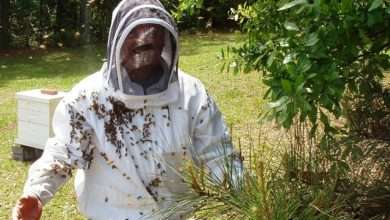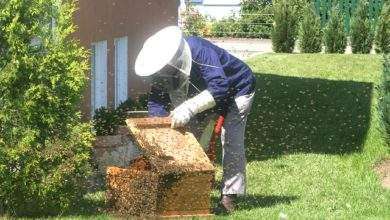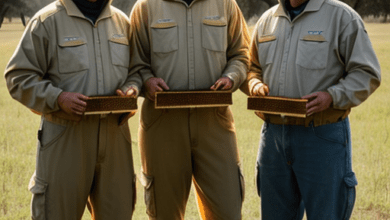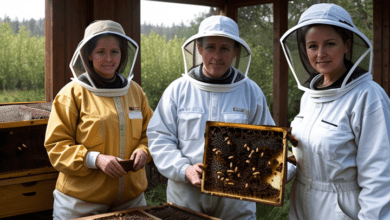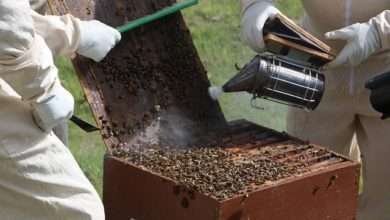Who should be a beekeeper?
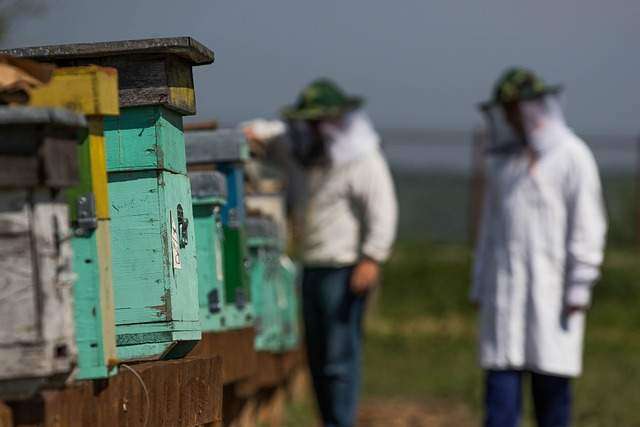
Beekeeping is a peculiar occupation in that it can be followed in town or country, by young or old, by rich or poor. Many women are numbered among the ranks of beekeepers.
To the professional or businessman, it offers a change from the confinement of office or laboratory. To the mechanic, it serves equally as well for recreation.
Many teachers find it a desirable occupation during vacation, at which time it adds not a little to the meager incomes provided by parsimonious school-boards. Lawyers, artists, farmers, ministers, merchants, brokers, professors in universities and laborers are numbered among its devotees.
Several old men known to the writer are kept mentally alert by their work and interest in the bees, while one friend of eight summers is a veteran in enthusiasm. Among
the ranks of professional beekeepers are found well-educated and uneducated men of all ages and with all the mental and physical defects or advantages in the category.
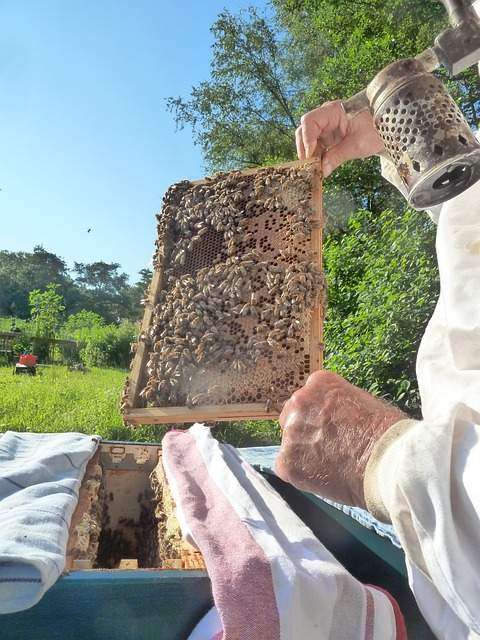
With such an array, it may seem fruitless to ask who should be beekeepers. The care of bees is not, however, equally well suited to all persons, and it would save much disappointment, both financial and otherwise, if this question were more frequently asked before embarking on this business.
First of all should be excluded those persons who are seriously affected by the poison of bee-stings. To some people, this is a serious matter and, unless it is imperative that they care for bees, it is better for them not to undertake it.
To practically all beginners, the stings are annoying, and the experienced beekeeper, however much he may brag of his indifference to stings, still suffers as much pain from the prick as he did at first.
With time and numerous stings, an immunity to the poison is developed which eliminates the after-swelling, which is the most annoying feature of the stinging. Nervous persons who cannot take stings without excitement would do better to keep away from bees, as there are times when the best of beekeepers will be punctured.
To carry on beekeeping with interest and profit requires an intimate study of the bees and a detailed knowledge of their needs. It further requires a knowledge of the plants from which they gather nectar so that the necessary steps may be taken to get the colonies in proper condition for the work required of them.
To be a good beekeeper, one must read and re-read the books and journals pertaining to the subject, for each reading, accompanied by additional experience among the bees, brings out some new point which
proves important in the practical work.
Furthermore, the beekeeper cannot work by rule of thumb. Bees are living, lively animals and may be “expected to do the unexpected,” as beekeepers so often express it. For this reason, it is necessary for the beekeeper to know the behavior of bees in all its phases and in so far as they have been determined, which is not far, the causes of their various
activities.
Obviously, the successful beekeeper is a naturalist and such persons are born, not made successfully. Patience, power of concentration and sympathetic understanding of the bees are essentials and, as a result, the bees become pets rather than beasts of burden to the true bee-crank.
Persons who fail to appreciate bees from this point of view will probably find it more . pleasant and profitable to let them alone. Like all general statements about bees, there are exceptions to this one.
Some who are financially successful beekeepers are totally devoid of sympathetic interest in bees and have learned to handle bees as it were by force. Such men are out of place as amateur beekeepers and indeed fail to reach the highest success as professionals.
The ardent bee-man finds pleasure in comparing experiences and observations with his co-workers, in conventions and out, and some of the best ” conventions ” are those in which two or three experienced beekeepers spend half or more of the night in talking over their latest ideas. They discuss new and supposedly improved apparatus and all the latest systems of manipulation, for there seem to be styles and fads in beekeeping as in clothes. The man who fails to find pleasure in such an interchange of views will find himself out of place among bee-enthusiasts.
Not only is a knowledge of what to do necessary to success with bees, but it is equally necessary that the right thing be done at the right time. To put on comb-honey supers too late, to delay the necessary steps in swarm control or to neglect the preparation of bees for winter, all mean loss in bees, honey and money.
In the make-up of the beekeeper must be promptness to do the things which his experience teaches. In the hands of the wise, the bees need remarkably little attention.
They should not be manipulated daily and the hive is better unopened unless some change is called for. The beginner errs almost universally in over- manipulation. It must not be forgotten, however, that the reduction in handling which comes with experience is not neglect, and the beekeeper must know daily whether the condition of the nectar-scenting plants or of his colonies calls for any manipulation. This requires experience and observation and finally promptness in doing what is necessary.
Instead then of being an occupation fitted for everyone, beekeeping is well fitted only to the minority. The array of human excellences here enumerated are not all necessarily present in perfection, but the nearer the approach of these qualities to that happy state, the more satisfactory will beekeeping be found as a vocation or avocation. It is to be hoped that these formidable requirements will not deter the potential bee-crank from making a beginning.
Beekeeping for Women
A question much discussed in books and journals on bees is that of beekeeping for women. Many women can and do handle bees with marked success.
In those parts of the business, which require delicacy of touch and minute attention, such as queen-rearing, women often surpass men in proficiency. As amateur beekeepers they are at home.
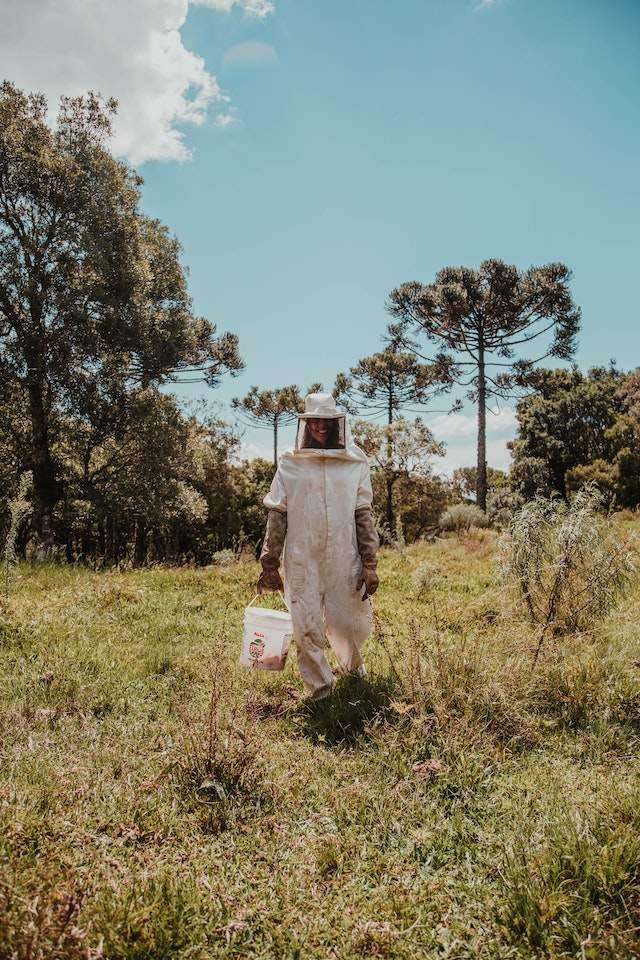
The question which usually presents itself, however, is whether beekeeping is suitable for women as a means of earning a livelihood and repeatedly has the writer been asked for advice on this subject. Professional beekeeping on a scale sufficiently large to supply an adequate income requires long hours of work in the hot sun, heavy lifting and unremitting physical endurance.
On a small scale these obstacles may be overcome, but in a commercial apiary the work must be done promptly, for delay means loss. While some women have found pleasure and profit in commercial beekeeping, it emphatically cannot be recommended for the majority of women, and this should be made clear to avoid disappointment for those who may be attracted to it.
Of course, this applies only to those women who have no man in the company to do the heavy work. Many a professional beekeeper has received assistance of incalculable value from the women of the family. It should be made clear that the obstacles to the commercial success of women beekeepers are physical ones only.
Advantages in Extensive Beekeeping
Several references have been made to the desirability of encouraging professional beekeeping, and this should be explained to avoid misunderstanding. Everyone who desires to keep bees, of course, has that privilege, so long as by so doing he does not interfere with the rights of others.
By common consent, a man’s bees are not considered as trespassing when they go outside his land for forage and consequently a beekeeper cannot legally or morally claim the exclusive right to keep bees in a locality. The beginner, therefore, is not considered as overstepping his rights in getting bees.
Taking a broader view of the subject, however, the professional beekeeper by his knowledge of the subject is able to produce larger crops, thereby utilizing the available nectar more economically. By this same knowledge and his better equipment, he is able to produce a better quality of honey.
It is therefore evident that from the standpoint of conserving a resource to the best advantage there is reason to encourage the extensive beekeeper.
In case a brood disease breaks out in a community, then there is every reason for taking sides with the professional beekeeper. The man with a few colonies is not financially interested to an extent which will compel him to care for the disease and in disease control it is usually necessary
The financial returns depend entirely on the market and the method of selling the honey. If sold by the beekeeper direct to the consumer, a pound of extracted-honey brings from 5 to 10 dollars, while a section of comb-honey sells at around 25 dollars.
If sold to dealers, the return is less but there is less liability of financial loss and less time consumed in selling. Naturally these estimates must be dependent on the quality of the product and on the neatness of the final package.
In addition to the labor there will be other expenses for supplies such as comb foundation, sections and occasional new hives and fixtures, not counting the apparatus used in increasing the apiary.
These may cost from $25 to $50. for each colony in a season. Estimates such as these are really of little value since the returns differ so greatly according to the kind of honey obtained and the facilities for marketing.
For example, the white clover honey of the North brings a higher wholesale price than the amber honeys which come from most regions of the South but, on the other hand, the southern beekeeper enjoys a longer nectar-secreting season and usually obtains larger crops from each colony.
Another factor which must not be overlooked is the beekeeper. Anyone may reap a heavy harvest in the season when nectar is abundant but in the lean years, which come more often than desired, only the good beekeeper makes the most of the nectar at hand. And then come years of practically total dearth of nectar, when feeding is necessary to keep the colonies alive.
Taking all these factors into consideration, it may be justly concluded that a successful beekeeper is usually well repaid for the time he spends in his work, if he considers the return in the sense of wage.
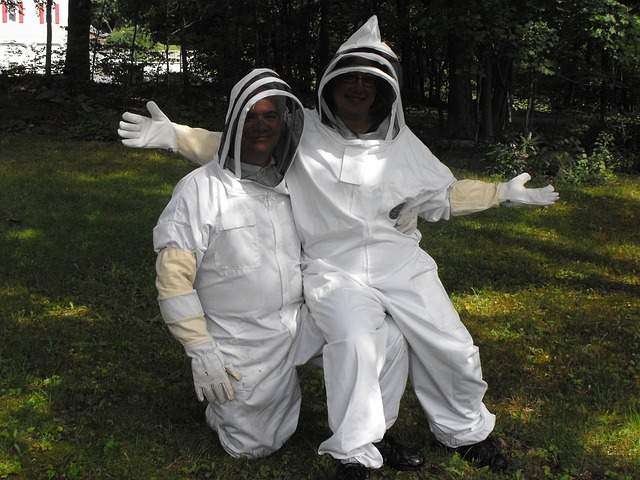
He may also consider that he has received the interest on his original relatively small investment. He usually averages little more than this, however, so that beekeeping is in no sense a “get-rich- quick” business. Its advantage as a recreation over most other occupations of a similar character is that it is a means of occupying time not otherwise engaged to a financial profit and the returns therefore often add that part to the income which brings comforts and pleasures.
Beekeeping yields a quick return on the investment, for frequently in a good year a colony will pay for itself. In fact there are few branches of agriculture which on so small an investment will yield as great a return. It may at least be said for the person who decides to try out beekeeping that he does not stand to lose much.
This chance calls to mind a conversation with a western friend. In recounting the present advantages and past glory of his beautiful city, he recalled the former gambling days when everything was “open.”
After a vivid description of those halcyon days and of some of the men of that time, he said, “I knew some of those men well. They were personal friends of mine and they saw nothing wrong in gambling. And I can appreciate their point of view — for I’m a beekeeper myself.”
In discussing the financial results, it is far from wise to overlook the other benefits. Beekeeping, to an enthusiast, means out of doors and intimacy with these interestinginsects which have been studied for centuries and still remain an unsolved riddle in many of their activities.
It may mean health to the person confined to an office. It means to a congenial spirit association with bee-enthusiasts, than whom no more optimistic and warm-hearted people exist. If these things make an appeal, then may apiculture be classed as yielding the greatest profits that can be conceived.
If now we attempt to decide for the questioning prospective beekeeper whether he should take up bees, from the previous discussion the whole question is solved : if he will like beekeeping, he should take it up ; if not, he would better never have considered it. And this is about as reliable and lucid a prophecy as is usually possible.
Excerpted and edited from: Beekeeping; a discussion of the life of the honeybee … 1915. Phillips, Everett Franklin, 1878-1951.
